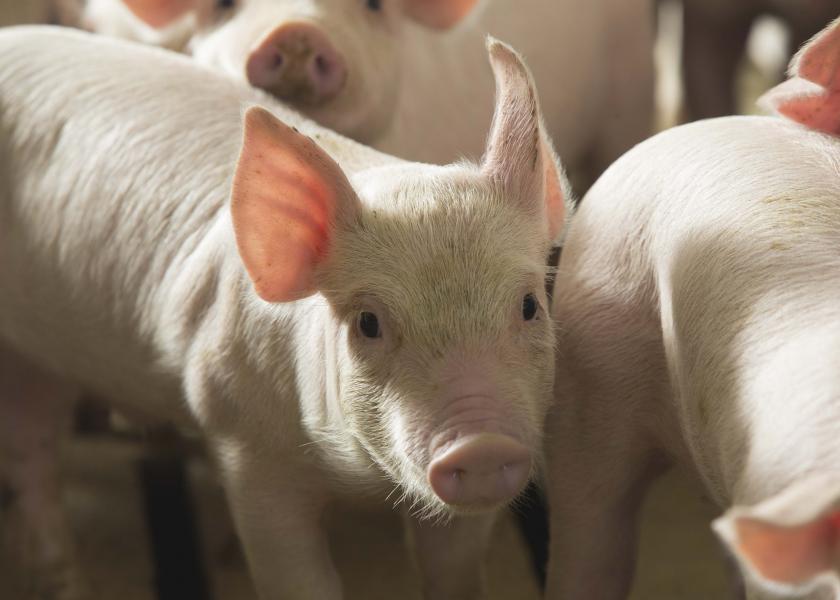Researchers Look for Ways to Control PRRS Via the Microbiome

Source: Kansas State University
A new $500,000 grant will help a Kansas State University researcher look for ways to control one of the most important viral agents in pigs: porcine reproductive and respiratory syndrome virus.
Megan Niederwerder, assistant professor of diagnostic medicine and pathobiology in the College of Veterinary Medicine, is the project director on the three-year grant from the USDA National Institute of Food and Agriculture, "Assessing the Microbiome as a Tool for the Mitigation of Viral Disease in Nursery Pigs."
"Porcine reproductive and respiratory syndrome virus, or PRRSV, causes the most costly disease to swine production in the United States," Niederwerder said. "The disease caused by this virus often involves secondary bacterial pathogens and results in polymicrobial lung infections, which exacerbate respiratory disease and increase antimicrobial administration in young growing pigs."
Although commercial vaccines are used to reduce the effects of PRRSV on swine health, Niederwerder said that currently available vaccines are generally considered inadequate for disease control. She said alternative strategies for control of PRRSV are needed to maintain swine health and welfare while lessening the economic effects of this disease on pork producers.
"The goal of our work is to investigate the gut microbiome as a novel tool for PRRSV control due to its impact on the immune system and nutritional outcomes after infection," Niederwerder said. "We plan to investigate the effects of microbiome modulation on the outcome of swine with respiratory disease and identify what beneficial microbes are associated with improved health. We anticipate the data generated in this project will allow us to characterize and determine the gut microbes that improve pig health in the presence of PRRSV."
Niederwerder hopes to determine how beneficial gut microbes may be used as a preventative medicine tool to reduce the effects of respiratory disease and decrease the need for antimicrobials in swine.
"As we continue to discover how gut microbes communicate with the lungs and influence the response to pathogens causing pneumonia, the gut microbiome provides an opportunity to improve swine health and welfare, lessen the economic losses to producers associated with PRRSV, and reduce the risk of antimicrobial resistance in swine," Niederwerder said.
"Ultimately, use of the gut microbiome to improve respiratory health and growth of livestock is an emerging and exciting area of study. With a need to increase production efficiency and provide food for a growing world, the gut microbiome represents tremendous potential in animal agriculture."
More from Farm Journal's PORK:
Coming to a screen near you Aug. 25-27 – the Farm Journal Field Days! | Register at FarmJournalFieldDays.com







